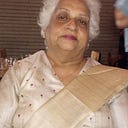Life and Death Walk Hand in Hand
About 17 years ago, hubby finally agreed to keeping a dog, but only if it was a German Shepherd. So, one rainy evening, this little pup was brought home. Deepika named him Yoda after the Star Wars character. Yoda was handsome, playful, loyal, loving and healthy. All of us loved him. Son and he were like brothers — played gently and rough too. On one such occasion, M2 (younger granddaughter) who was about 10 months old, bawled as she probably thought Yoda was attacking her father.
I said, he was healthy — not once did we have to take him to the vet, except for his shots. Then, one night at about 11:00 p.m., at one moment he was barking furiously at something he had heard and the next moment he was in great pain. The pain killer did not work. We called our vet a few times, but he did not pick up the phone. (We had not heard about CUPA’s 24 hours service then). Also, I think we missed out on understanding the gravity of the situation. Yoda moved from one favourite spot to another and I followed, sat with him, talked to him. At about 5:00am he wanted to go out, and so we went. I then told him that I would call Sandeep. When he heard the sound of the car, he got up with difficulty and staggered to the gate. We tried another vet, who prescribed a medication on the phone. By the time Sandeep was back with the medication Yoda had breathed his last. I cried as I had never cried before. Till this day, we don’t know what happened to him. He was only 5 years old.
This was the girls’ first experience of death. How did they take the news? M1 (older granddaughter) who was about 3 years old then, can still look at his pictures and get emotional.
Wondering why I am talking about the death of a pet! Well, it was easier for me, than to talk about a parent, a sibling, a relative or a friend.
Yoda’s story has messages for us human beings to ponder on, the most important being dying and death.
Among other topics, death is a taboo topic. In the west, it is called, ‘death denying’ culture.
Have you tried saying to someone, ‘When I am dead’, and people will at once say, ‘Don’t talk like that, it is not going to happen so soon.’
And if a spouse wants to prepare you for his death, (excuse the gender bias) by telling you about financial and legal matters; the response is to brush it aside and say there is a lot of time for that discussion.
In earlier days, especially in joint or large extended families, exposure to death was a normal part of life, painful but normal. There was family around to explain, talk to and offer support. Nowadays, most often deaths take place elsewhere — in a hospital or a hospice or even in another state or country. Then comes the dilemma of how does one break the news.
I don’t know if there is any one best way to do it. There could be as many ways as there are people. I however believe that the news should be broken compassionately and honestly. Use of words like, ‘passed away’ or any other euphemism to describe death can be confusing especially for children. Feelings should be expressed and should be encouraged. Fifty years ago, when my cousin died in a drowning accident I tried to tell my aunt who was talking to someone that she should rest and she replied by saying, ‘I want to talk.’ I didn’t realize and understand then, that it was good to express one’s feelings and just as good to be the listener as a supportive, helping hand. I don’t know about you, but I have on occasion not condoled with someone as I didn’t know what to say, when to say and how to say what I really wanted to say. Days pass in the dithering and then you say to yourself, it is just too late now!
While on the topic of death, I need to continue what I started in my earlier blog, on the fear of death.
One night during the Covid attack, I was afraid, very afraid; I thought I would need some help to cope. The fear passed away as I prayed, introspected, read and reflected.
(Some of the following thoughts that helped me are taken from an article of the Krishnamurti Trust)
Death is the end of everything that I know of. The end of my bank balances, property, clothes, jewellery, everything. Of course, all this I can pass on to someone in my lifetime or through a will. But the scary part in my limited understanding, is that it is the end of my body, my mind, the things that I want to do, the people I should speak to and also forgive and say ‘I love you.’ The end of everything with no second chances.
So, how does one live with death? Should I avoid thinking about it?
No, I am not going to do that — not because death is inevitable but because I have to live my life to the fullest — physically, mentally, socially, emotionally and spiritually.
Life and death are intertwined; they walk hand in hand and should not be separated. Death teaches us about the meaning of human existence.
Here is a beautiful anonymous quote –
‘The fear of death follows from the fear of life.
A person who lives fully is prepared to die at any time.’
A small aside:
Have you heard the word Thanatology?
Even though I am a career counsellor I had not. It is the study of death and dying. It can be a good career for those who would like to help people with Death and Grief.
